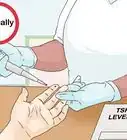This article was medically reviewed by Sarah Gehrke, RN, MS. Sarah Gehrke is a Registered Nurse and Licensed Massage Therapist in Texas. Sarah has over 10 years of experience teaching and practicing phlebotomy and intravenous (IV) therapy using physical, psychological, and emotional support. She received her Massage Therapist License from the Amarillo Massage Therapy Institute in 2008 and a M.S. in Nursing from the University of Phoenix in 2013.
There are 12 references cited in this article, which can be found at the bottom of the page.
This article has been viewed 37,739 times.
Orexin, also known as hypocretin, is a hormone that controls your sleep patterns and might impact your metabolism and ability to lose weight. If your body doesn't produce enough orexin, you can adjust your diet by eating less sugar and carbs, for instance. Your doctor may recommend supplements or medication as well. You can also take care of your body by exercising and losing weight to increase your orexin levels naturally.
Steps
Trying Dietary Changes or Supplementation
-
1Consume more fermented foods. Eating fermented foods like sauerkraut and pickles can help increase orexin production. Fermented foods contain lactic acid, and the production of lactic acid can block glucose production, which decreases orexin production. So eating more fermented foods can actually help increase orexin production.[1]
-
2Eat less sugar and carbs. When you eat sugar and carbs, your body converts them into glucose. Research suggests that increased glucose levels actually prevent the production of orexin. By eating less sugar and carbs you give your body the chance to produce more orexin, which can potentially increase your energy or promote weight loss.[2]
- You can reduce your carb intake by staying away from starchy foods like potatoes and carrots, as well as bread and pasta.[3]
- Stay away from foods that are high in sugar. A lot of processed foods have added sugar, so make sure you check the nutrition facts. Fruit also has a bit of naturally occurring sugar, so you should cut back on those, too.
Advertisement -
3Try intermittent fasting to increase your orexin levels. Intermittent fasting during the day can actually make your body producing more orexin. Start fasting for 16-20 hours per day. Then, at the end of each day, eat a large nutritious meal.[4]
- If intermittent fasting makes you feel worse, go back to your normal eating schedule and look for other dietary changes you can make to increase your orexin levels.
-
4Talk to your doctor about taking medication. If your doctor determines your orexin levels are low, they may prescribe certain medications to help your body increase its production of orexin.[5]
- If your orexin levels are low because of narcolepsy, your doctor might prescribe 400 mg modafinil per day. Follow your doctor's instructions exactly, because modafinil is a controlled substance and overdosing is easy.[6]
- Your doctor may also prescribe Orexin-A to help increase your orexin levels. How the drug is administered will depend on your levels, but it will likely be through the nose or in the form of an injection your doctor will give you in the office.[7]
-
5Consider other potential ways to increase orexin levels. Taking omega 3 supplements might help increase orexin levels in people who don't have narcolepsy. You can also try Lactobacillus probiotics, which can increase the production of lactic acid in your body and therefore may increase your orexin levels.[8]
- You can find medically uncertain or unproven ways to increase orexin levels all over the internet. Most are harmless, but may also be unhelpful. It's always best to consult your doctor first.
- If you're considering taking omega 3 supplements, talk to your doctor. They can tell you what dosage you should take.
Adjusting Your Lifestyle
-
1Exercise for 30 minutes every day. Increased acidification of your blood can increase orexin levels. One of the easiest ways to increase the acidification of your blood is to exercise! Getting 30 minutes of exercise each day is good for your overall health and can also increase orexin levels.[9]
- Interval training is a great way to increase orexin in your blood.
- If you can't commit to interval training, that's okay! As long as you exercise for 30 minutes every day, your orexin levels should increase.
-
2Lose weight. Leptin is a protein that can inhibit the production of orexin. Since leptin comes from fatty tissue in your body, losing weight can decrease the amount of leptin your body produces. Talk to your doctor about the healthiest way for you to lose weight. They can tell you how many calories you should be consuming each day and what sort of exercise is best.[10]
- A good way to begin losing weight is through portion control. Instead of eating 2 or 3 helpings of each part of your meal, stick to 1 or 2. A nutritionist can also help you figure out what each portion should look like.
-
3Get a bright light. Bright light therapy can help to increase the production of orexin in your body naturally. Sit by a bright light device for a few hours per day. You might find that you are less tired.[11]
- You can find bright light devices from a lot of online retailers. Look for bright light devices that are meant for the treatment of Seasonal Affective Disorder. They're the same lights that will help increase orexin production.
Identifying Signs of Low Orexin
-
1Track your sleep patterns. Everyone has days now and then when they feel worn out or tired. But your orexin levels might be low if you feel sleepy or fatigued every day, and sometimes find yourself falling asleep during the day.[12]
- Low orexin levels can cause a condition known as narcolepsy. If you find yourself falling asleep suddenly during the day, see your doctor immediately.
-
2Pay attention to how often you're hungry. Low orexin levels can cause changes in your appetite. If you find yourself hungry all the time, and if you can't control how much you eat, low orexin levels might be to blame.[13]
-
3Track your sexual arousal. Another symptom of low orexin levels is a lack of sexual arousal. If you've noticed a change in your sex drive or your level of arousal during sex, your orexin levels may have dropped.[14]
-
4Ask someone to track your fidgeting. If you fidget a lot, your orexin levels might be low. Ask someone who spends most of the day with you to keep an eye on you. You won't always notice when you're fidgeting, but they will.[15]
References
- ↑ https://physoc.onlinelibrary.wiley.com/doi/full/10.1113/jphysiol.2011.217000
- ↑ http://diabetes.diabetesjournals.org/content/50/1/105.full
- ↑ http://www.eatthis.com/foods-high-in-carbs/
- ↑ https://www.ncbi.nlm.nih.gov/pmc/articles/PMC5772108/
- ↑ https://med.stanford.edu/narcolepsy/faq1.html#3
- ↑ https://www.ncbi.nlm.nih.gov/pmc/articles/PMC2654794/
- ↑ http://www.jneurosci.org/content/27/52/14239
- ↑ https://www.superfoodly.com/hypocretin-supplements-how-to-increase-orexin-naturally/
- ↑ https://www.ncbi.nlm.nih.gov/pmc/articles/PMC5306252/
- ↑ https://www.ncbi.nlm.nih.gov/pubmed/25143620
- ↑ https://www.ncbi.nlm.nih.gov/pubmed/24813431
- ↑ https://neuroanthropology.net/2008/02/06/sleep-eat-sex-orexin-has-something-to-say/
- ↑ https://neuroanthropology.net/2008/02/06/sleep-eat-sex-orexin-has-something-to-say/
- ↑ https://neuroanthropology.net/2008/02/06/sleep-eat-sex-orexin-has-something-to-say/
- ↑ https://neuroanthropology.net/2008/02/06/sleep-eat-sex-orexin-has-something-to-say/


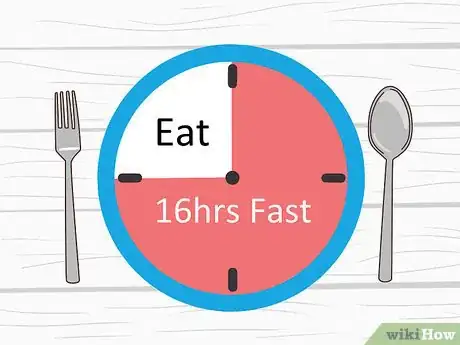

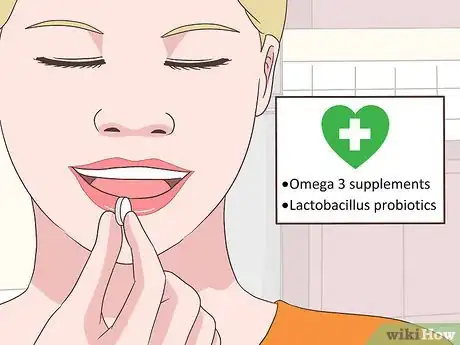

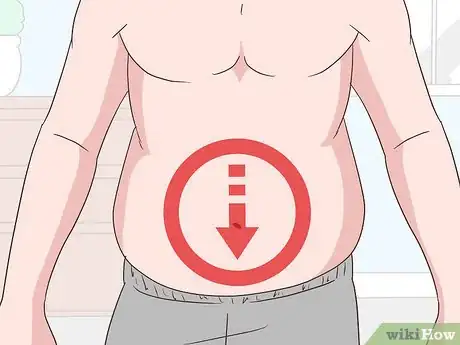

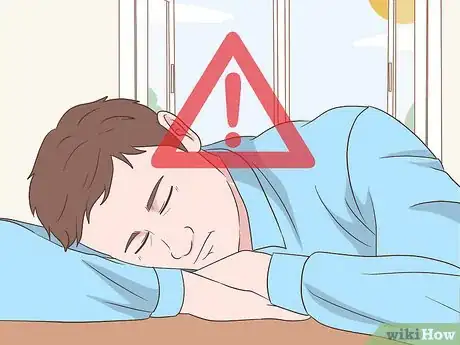
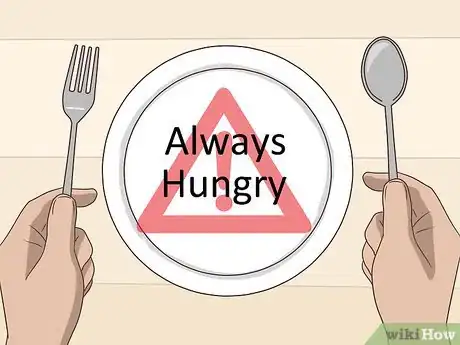

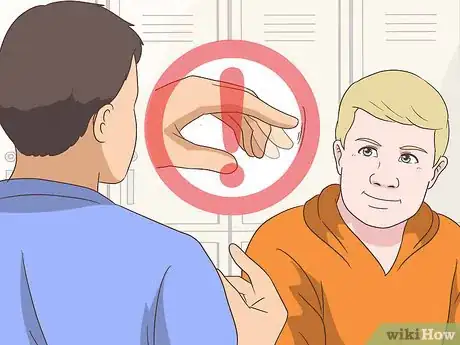
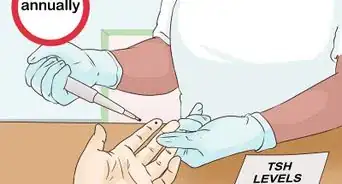



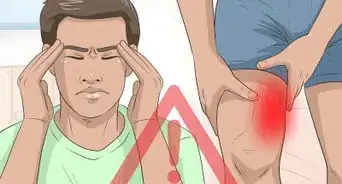






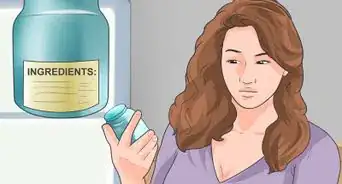
-Step-12-Version-2.webp)









